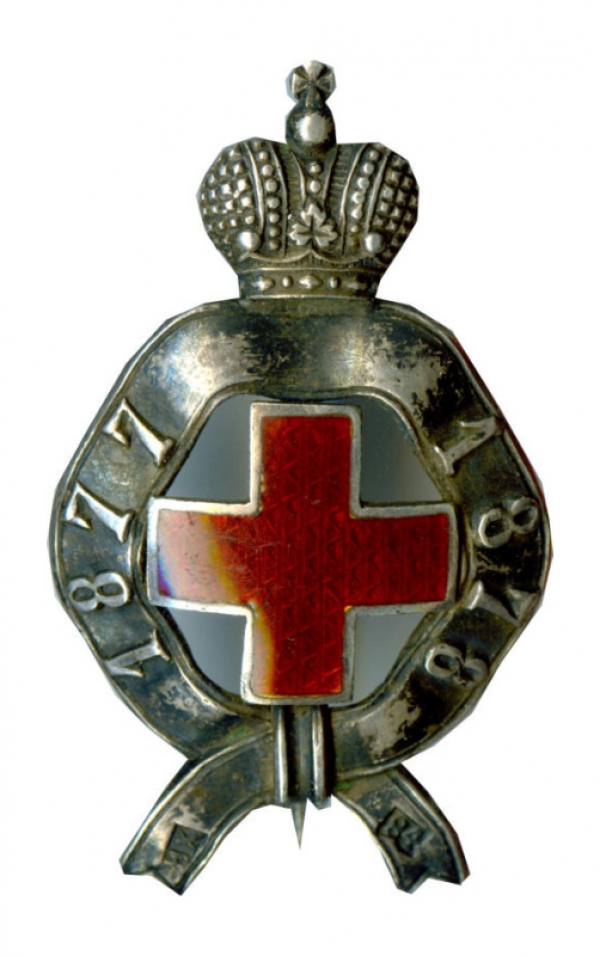GREETINGS
FROM THE HEAD OF THE RUSSIAN IMPERIAL HOUSE
HER IMPERIAL HIGHNESS
GRAND DUCHESS MARIA OF RUSSIA
ON THE 150TH ANNIVERSARY OF THE FOUNDING
OF THE RUSSIAN RED CROSS SOCIETY
CHRIST IS RISEN!
I send my heartfelt congratulations to the administration, members, and volunteers of the Russian Red Cross Society on the 150th anniversary of its founding.
On May 3, 1867, my great-great-grandfather, Emperor Alexander II the Tsar-Liberator, approved the Charter for the Society for the Care of Sick and Wounded Soldiers, which 12 years later was renamed the Russian Red Cross Society.
In the years after its founding, the Russian Red Cross Society became one of the most important philanthropic and health-care providing institutions of the Russian Empire, enjoying the personal patronage first of Empress Maria Alexandrovna, and then, after her death, of Empress Maria Feodorovna.
Thanks to the Russian Red Cross Society, countless lives of those who have suffered in wars and natural disasters have been saved. To join the Society was considered the greatest of honours not only by members of Our House, but also by some of the most prominent members of the government and society at large. But the most important contributions to the work of the Society were made by ordinary citizens: doctors, nurses, and volunteers who offered their service often at the risk of their own health and lives. The Imperial Patronesses, Grand Duchesses and Princesses, and members of Russia’s great noble and wealthy families gave generously to support the needs of the Red Cross, but they valued most of all the opportunity to work side by side with their fellow countrymen in caring for the sick, the wounded, and the needy.
The First World War presented many examples of social unity across Russian society, with women and men from all social classes coming together to help those wounded in battle. The Dowager Empress Maria Feodorovna and Empress Alexandra Feodorovna, the Grand Duchesses Olga, Tatiana, Maria, and Anastasia, the New Martyr Grand Duchess Elizabeth Feodorovna, the sisters of Emperor Nicholas II, Grand Duchesses Olga and Xenia, and other women of the House of Romanoff—all selflessly gave of themselves to help organize medical services and work in hospitals. I have always been deeply moved by the example set by my great-grandmother, Grand Duchess Maria Pavlovna the Elder, who organized an ambulance service from the front lines, created hospitals in Petrograd for soldiers and officers, turned her own palace into a warehouse for linens and bandages for the wounded, created a committee to provide for the needs of soldiers discharged from hospitals, worked to locate and communicate with Russian prisoners of war, provided support for military cemeteries, and visited distant parts of Russia in an effort to inspect and provide local charitable resources for the needy affected by the war. My grandmother, Grand Duchess Victoria Feodorovna, herself lead one of the military ambulances that operated from the front lines, being awarded the St. George Medal in all its classes for her courage and heroism.
In 1917, our country suffered a disaster and was struck with a terrible disease that afflicted the entire country: in that year began the blood-soaked Revolution and fratricidal Civil War, during which father and sons, and brothers and sisters brought death and mutilation upon each other. In these horrific conditions, the Russian Red Cross Society nonetheless continued to fulfill its vital humanitarian mission.
Despite the upheavals and fundamental changes that came to life in Russia after the Revolution, the Red Cross remained one of the historical institutions that continued uninterrupted its work since its founding.
In the harsh and brutal times that followed, the “Union of the Red Cross and Red Crescent Societies” continued unswervingly to follow its ideals of kindness, self-sacrifice, and mutual assistance. The efforts of the Union during the years of World War II, especially in collecting blood donations for the wounded, are especially significant and admirable.
Temporarily cut off from our homeland, the Russian Imperial House nonetheless never severed its ties with that part of the pre-Revolutionary Russian Red Cross, which in the first decades after 1917 continued its work among the Russian émigré communities. For example, in 1924 my grandmother Empress-in-Exile Victoria Feodorovna, along with the widow of Vice-Admiral S. O. Makarov, K. N. Makarova, Princess V. K. Meshcherskaia, and Rear-Admiral N. A. Petrov-Chernyshin, made a charity fundraising trip to the United States of America, collecting money that they then turned over to the émigré Russian Red Cross, which desperately needed it. But we have always felt that the revival of the Russian Red Cross Society could only really ever happen inside Russia itself.
I am gratified that the Russian Red Cross Society was able to survive the difficult years of crisis in the 1980s and 1990s, and is now growing and further developing the ancient living tradition in Russia of charity and caring for the needy, drawing support from the Russian government and finding a generous response in the hearts of millions of our countrymen.
With all my heart, I wish you all good health, many years, strength of spirit, and every success in improving and expanding the ways you deliver the essential services you provide for the betterment of life in our country. .
My son and heir, Grand Duke George of Russia, likewise sends his warmest wishes and heartfelt congratulations to you all.
God bless you!
The original is signed in Her Imperial Highness’s own hand:
Maria
Madrid, May 3/16, 2017

